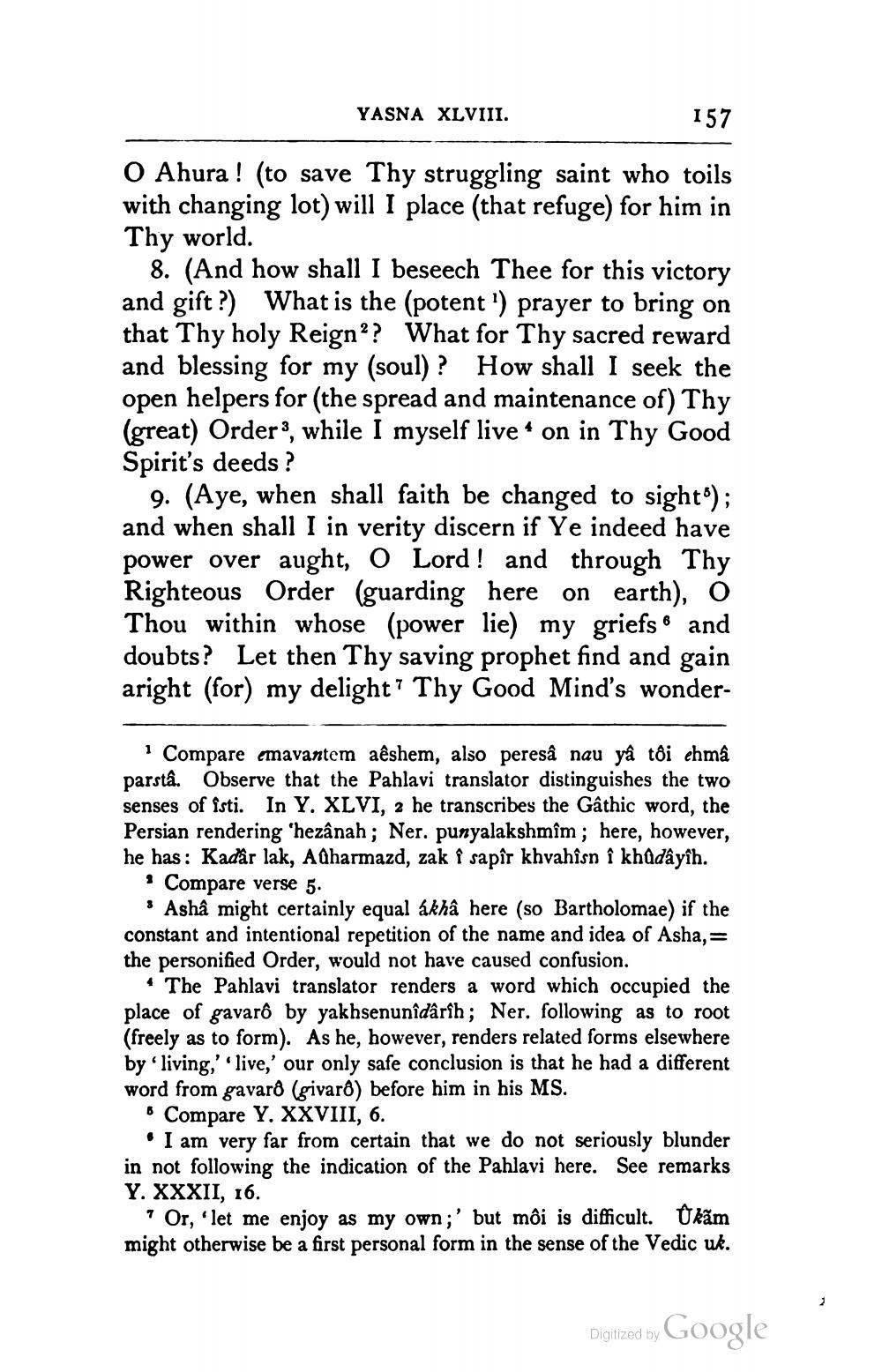________________
YASNA XLVIII.
157
O Ahura ! (to save Thy struggling saint who toils with changing lot) will I place (that refuge) for him in Thy world.
8. (And how shall I beseech Thee for this victory and gift?) What is the (potent') prayer to bring on that Thy holy Reign?? What for Thy sacred reward and blessing for my (soul)? How shall I seek the open helpers for the spread and maintenance of) Thy (great) Order 3, while I myself live* on in Thy Good Spirit's deeds ?
9. (Aye, when shall faith be changed to sight); and when shall I in verity discern if Ye indeed have power over aught, O Lord! and through Thy Righteous Order (guarding here on earth), O Thou within whose (power lie) my griefs & and doubts? Let then Thy saving prophet find and gain aright (for) my delight? Thy Good Mind's wonder
i Compare emavantcm aêshem, also peresa nau yâ tôi ehma parsta. Observe that the Pahlavi translator distinguishes the two senses of isti. In Y. XLVI, 2 he transcribes the Gâthic word, the Persian rendering 'hezânah; Ner. punyalakshmim; here, however, he has : Kadar lak, Adharmazd, zak i sapîr khvahîsn î khûdâyîh.
. Compare verse 5.
8 Ashâ might certainly equal ákhâ here (so Bartholomae) if the constant and intentional repetition of the name and idea of Asha,= the personified Order, would not have caused confusion.
• The Pahlavi translator renders a word which occupied the place of gavarô by yakhsenunîdârih; Ner. following as to root (freely as to form). As he, however, renders related forms elsewhere by living,' live,' our only safe conclusion is that he had a different word from gavarð (givarð) before him in his MS.
Compare Y. XXVIII, 6. . I am very far from certain that we do not seriously blunder in not following the indication of the Pahlavi here. See remarks Y. XXXII, 16.
? Or, let me enjoy as my own;' but môi is difficult. Ukām might otherwise be a first personal form in the sense of the Vedic uk.
Digitized by
Digitized by Google




